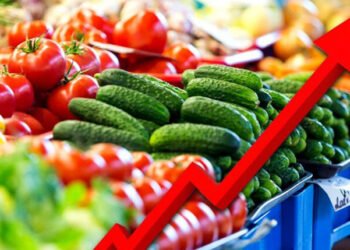Ghana emits moderately low greenhouse gases but still does extremely well in terms of social progress compared to its economic peers, a new report suggests.
While Ghana’s case fits perfectly well with other countries such as Costa Rica, Jamaica and Sweden, it varies widely with advanced economies like the US, Canada, Australia, among others.
For example, Ghana’s social progress index (SPI) score was 65.67 which is close to Qatar’s score of 68.07, but at 35.89 GHG per capita Qatar emitted a staggering 24 times the amount of GHGs per capita than Ghana.
According to the report which combines findings from the 2021 Social Progress Index and the greenhouse gas emissions and development report: it is possible for countries to advance social progress and at the same time tackle climate change.
Ghana does better than its economic peers
On the basis of sustainable development, the United Nations indicated that Ghana achieved 65.3 per cent of the sustainable development goals and had completely achieved targets of the SDGs 12, responsible consumption, and SDGs 13, climate action.
Explaining why this was so, the report revealed that Ghana depends heavily on the well-being of the environment, as a result focused efforts on public policies in favour of preserving the environment.
As part of actions taken by the government were the establishment of 35 more operational offices of the Environmental Protection Agency (EPA) located in strategic areas most vulnerable to climate change disasters.
These led to the reduction of Ozone Depleting Substances under the Montreal Protocol and climaxing these actions with the creation of an Inter-Ministerial Technical Committee towards achieving the 2030 agenda.
“Ghana does better than countries with a similar level of income, in education, healthcare, and it also performs much higher in areas of personal rights. While recognizing the group of peer countries, we also see that it does better in gender equity than others…
“The 40 year Long Term Development Plan (2018-2057) they developed is a commitment to building an inclusive and equitable economy and society.”
Social Progress Imperative
Achieving social progress and lower emissions
The 2021 Social Progress Index (“the Index”) ranks 168 countries’ social performance since 2011 based on 53 social and environmental outcome indicators. For the first time, the Social Progress Index specifically examines the relationship between sustainability and social progress.
The report highlights that “if every country achieved emissions levels comparable with the most sustainable country at a similar level of development, the world would achieve a sustainable level of GHGs.”
Fundamentally, this translates into reducing the amount of greenhouse gas per capita by 4.58 tonnes and achieve a sustainable level of emissions.
“If the United States, Canada, Australia and other high emitting wealthy nations could put the needs of the planet and human life before their economies. It would be a big signal to the emerging giants to do the same.
“Because if the rich world, with all of their resources and progress, would not make this sacrifice- then why should anyone else?”
Social Progress Imperative
The report notes importantly that, “asking every country to emulate wealthy nations with easy access to green energy sources, such as Sweden, is unrealistic”. However, focusing on countries’ emissions alongside peers at similar levels of development and social progress, the world “can get much clearer sense of what is possible”.
READ ALSO: T-Bills Undersubscribed By 10.5% in Quarter 3- Report























